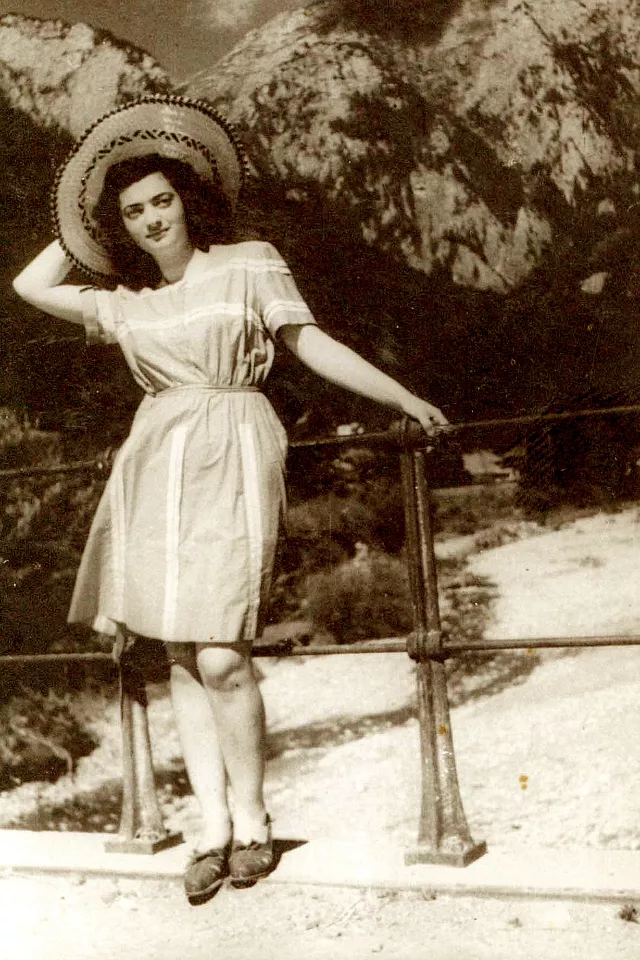Livia Diaconescu
This is a picture of me at the age of 19. This photo was taken on 20th August 1948, in Poiana Tapului [a spa in the Carpathian Mountains]. My mother took me to the mountains on vacation. I was impressed by the beauty of the place.
Hard times came after the war, after 23rd August 1944. It wasn't very hard at the beginning though. I went to the public high school, where I studied with many of my former teachers. My schoolmates from the Jewish High School sat at desks in the back of the classroom, but I didn't want us to look as though we were keeping our distance, so I sat in the third row. I interrupted my piano classes so I could study properly. My father, who wasn't used to seeing me so persevering, would send me to bed, but I always had something extra to do. I was an ordinary student, but I caught up with what I had missed at the Jewish High School, where I had been able to choose the subjects I liked more. They didn't give me this opportunity at the public high school.
I continued to live in Focsani. I was sick for two years, stayed indoors and lost contact with my schoolmates. I wasn't allowed to make any effort; they confined me to the bed and protected me as if I were an eggshell. My mother took me to Poiana Tapului, as the doctor recommended.
After two years, I had had enough and began to study really hard in order to catch up for admission to college. But what college was I supposed to choose? I was drawn towards the Letters, as I had enjoyed reading ever since I was a child. But my frustration about not having studied chemistry at the Jewish High School and about having had a chemistry teacher who used to humiliate us at the public high school made me go for the Faculty of Chemistry in Bucharest. I also had to learn about the nationalization, the laws and so on, and about the rights of the socialist woman: how 'she used to be long-haired and short-minded in the past' and how things had changed for the better after the war [the emancipation of the socialist woman and the parting with the bourgeois traditions, according to which a woman could be successful in life only through marriage]. My average was over 8 and I took the exam. I was very delighted.
I went to college with Dori Ianconescu and Lili Bercovici, her former classmate, who had to leave for Israel soon. My fellow-students were very special, both the Romanians and the Jews. I didn't keep in touch with the community in Bucharest, as I was very busy. My daily schedule was always full, I studied a lot and didn't go to parties much. Looking back, I feel frustrated about that. In the first two years, they didn't give me a free ticket for the canteen, as my father was an owner (he still had one shop assistant). In the 3rd year of college, the State took away his store [through nationalization], and moved him to another store. Things became more difficult for us. I had to find another place to rent in Bucharest.























